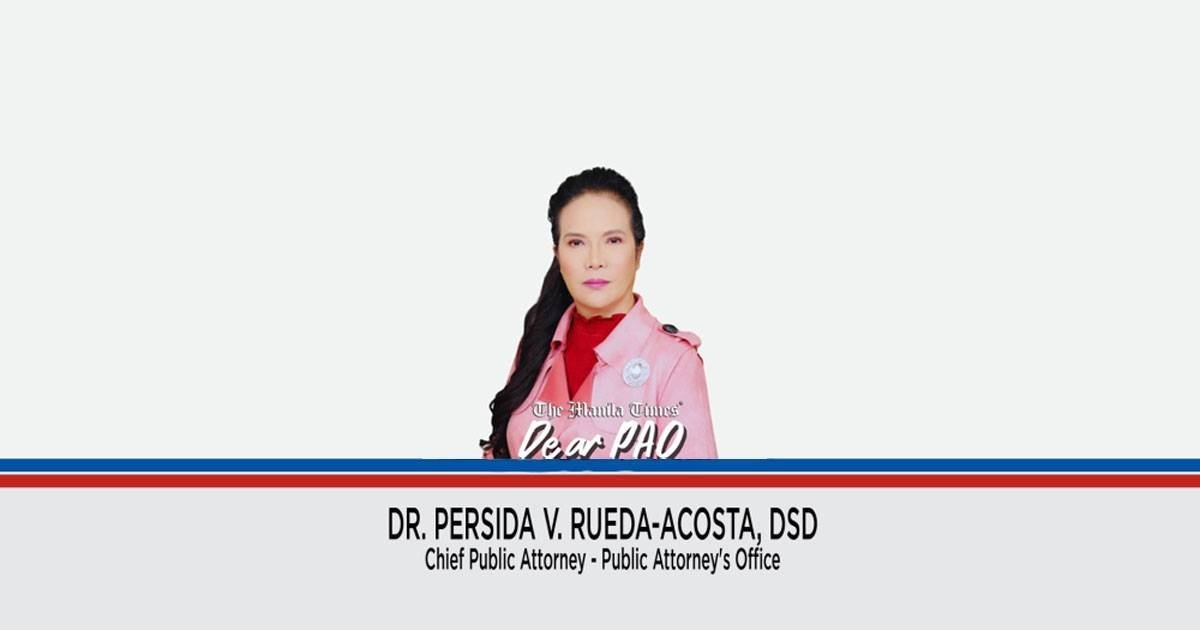
Dear PAO,
The biological father of my child refuses to recognize our child as his own. He, likewise, refuses to provide for support despite repeated demands. I challenged him to undergo a DNA testing to determine whether he is the father of my child or not, but he refuses arguing that he cannot be compelled to undergo the said examination as it is a violation of his rights. Is his contention correct?
Mariel
Dear Mariel,
No, his contention is not correct. He may be compelled to undergo DNA testing to determine paternity upon the order of a competent court. The use and conduct of DNA testing as a means to establish evidence in a legal proceeding is provided under AM 06-11-5-SC, or the Rules on DNA Evidence, which was promulgated by the Supreme Court on Oct. 2, 2007. Section 4 of the said rule provides:
“Sec. 4. Application for DNA Testing Order. – The appropriate court may, at any time, either motu proprio or on application of any person who has a legal interest in the matter in litigation, order a DNA testing. Such order shall issue after due hearing and notice to the parties upon a showing of the following:
“a. A biological sample exists that is relevant to the case;
“b. The biological sample: (i) was not previously subjected to the type of DNA testing now requested; or (ii) was previously subjected to DNA testing, but the results may require confirmation for good reasons;
“c. The DNA testing uses a scientifically valid technique;
“d. The DNA testing has the scientific potential to produce new information that is relevant to the proper resolution of the case; and
“e. The existence of other factors, if any, which the court may consider as potentially affecting the accuracy of integrity of the DNA testing.
“This Rule shall not preclude a DNA testing, without need of a prior court order, at the behest of any party, including law enforcement agencies, before a suit or proceeding is commenced.”
From the foregoing, it is clear that DNA testing is sanctioned under our legal system. It may be resorted to by the parties before a suit or proceeding is commenced. Should the issue of paternity reach the courts, the judge may order DNA testing, either on its own initiative or at the behest of any interested party. Prior to the issuance of such order, the elementary requirement of due process, that is, notice and hearing, must first be complied with.
Under the same rules, if the value of the probability of paternity is less than 99.9 percent, the result of the DNA testing shall be considered as corroborative evidence, but if the value of the probability of paternity is 99.9 percent or higher, there shall be a disputable presumption of paternity. (Sec. 9, Id.) Disputable presumptions are satisfactory if uncontradicted, but may be contradicted and overcome by other evidence.
The claim that compulsory DNA testing violates the rights of an individual is incorrect. In the case of Arnel L. Agustin v. Hon. Court of Appeals and Minor Martin Jose Prollamante, represented by his mother/guardian Fe Angela Prollamante (GR 162571, June 15, 2005, Ponente: Associate Justice Renato Corona), the Supreme Court explained that compulsory DNA testing and the admissibility of the results thereof are constitutional, to wit:
“It has mostly been in the areas of legality of searches and seizures, and the infringement of privacy of communication where the constitutional right to privacy has been critically at issue. If, in a criminal case, an accused whose very life is at stake can be compelled to submit to DNA testing, we see no reason why, in this civil case, petitioner herein who does not face such dire consequences cannot be ordered to do the same.
“For too long, illegitimate children have been marginalized by fathers who choose to deny their existence. The growing sophistication of DNA testing technology finally provides a much needed equalizer for such ostracized and abandoned progeny. We have long believed in the merits of DNA testing and have repeatedly expressed as much in the past. This case comes at a perfect time when DNA testing has finally evolved into a dependable and authoritative form of evidence gathering. We therefore take this opportunity to forcefully reiterate our stand that DNA testing is a valid means of determining paternity.”
We hope that we were able to answer your queries. Please be reminded that this advice is based solely on the facts you have narrated and our application of the same. Our opinion may vary when other facts are changed or elaborated.
Editor’s note: Dear PAO is a daily column of the Public Attorney’s Office. Questions for Chief Acosta may be sent to [email protected]






